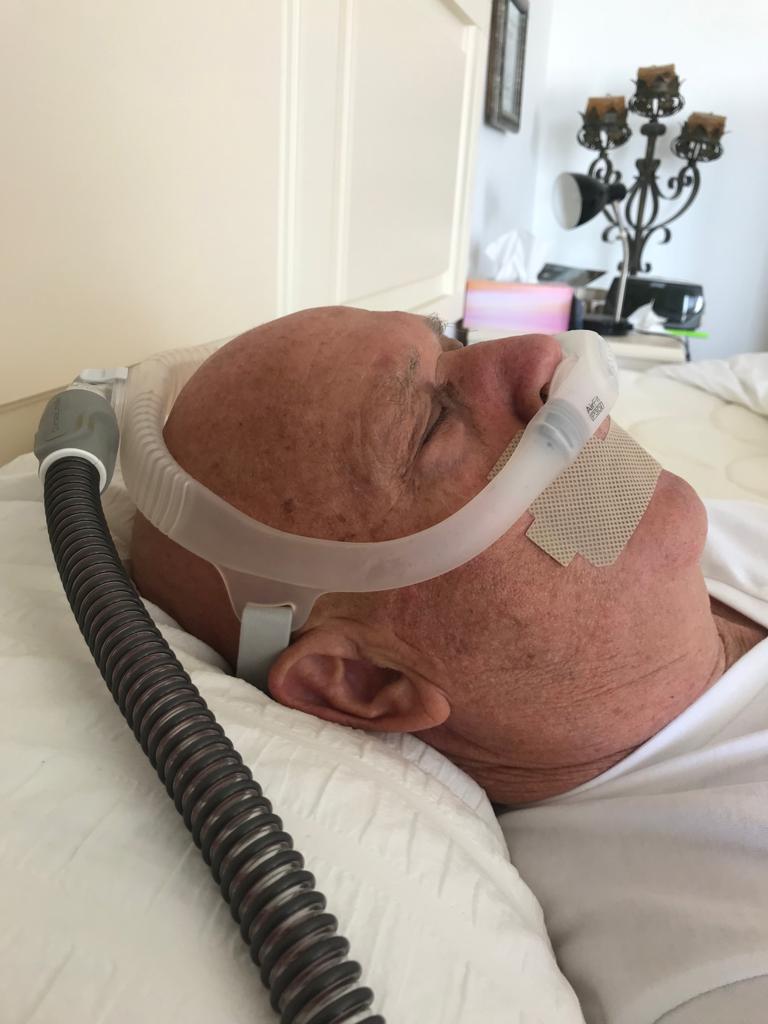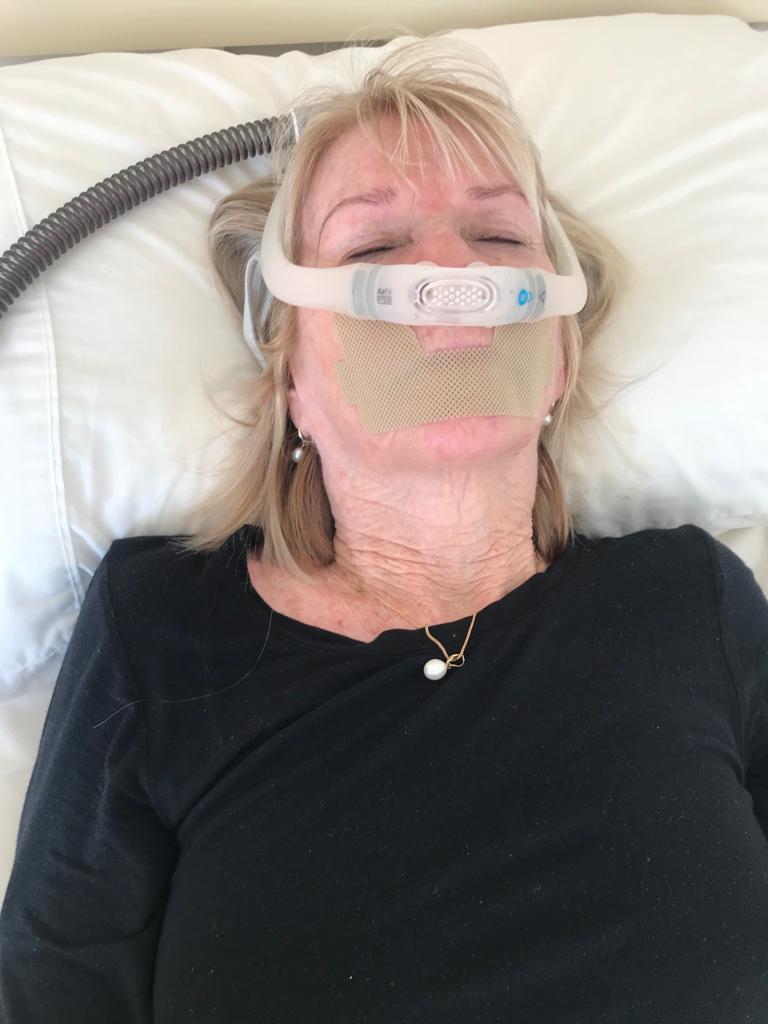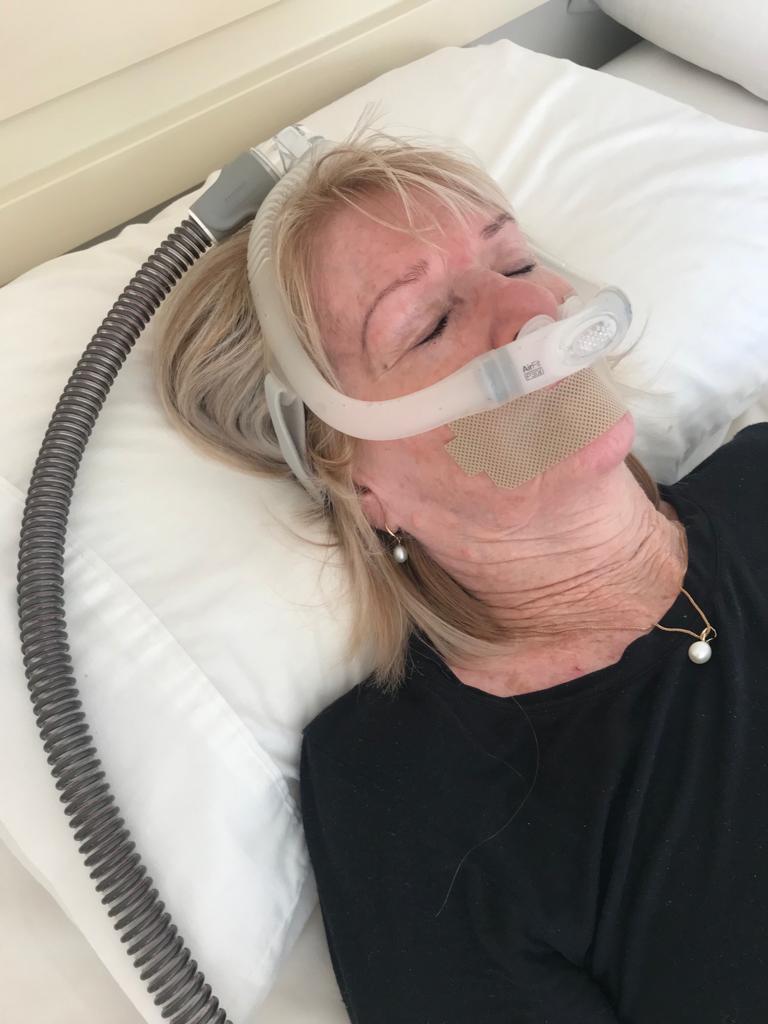Taping mouth to stop snoring:
The quest for a good night’s sleep can be elusive for those who suffer from snoring or share a bed with someone who does. Snoring can disrupt sleep patterns, lead to daytime fatigue, and create relationship tension. In search of a solution, some individuals have turned to a rather unconventional approach: taping their mouths shut before bedtime. While it might sound peculiar, this practice is rooted in the belief that it can prevent mouth breathing and reduce snoring. This comprehensive guide explores taping your mouth to stop snoring, examining its potential benefits, associated risks, and alternative strategies for achieving quiet, restful nights.
The idea behind tapping your mouth to stop snoring is that it can address one of these factors: mouth breathing. The assumption is that by preventing mouth breathing during sleep, you can reduce the vibration of throat tissues and decrease snoring. However, it’s essential to weigh the potential benefits against the risks and consider alternative strategies.
How Does It Work?
Tapping your mouth to stop snoring is straightforward: you apply adhesive tape over your lips to keep your mouth closed during sleep. The concept behind this is promoting nasal breathing, considered more efficient and less likely to result in snoring. Here’s how it works:
- Gather the Right Tape: Opt for medical-grade micropore or specially-designed mouth tape, which is gentle on the skin and easy to remove. Avoid heavy-duty or harsh tapes, which irritate the skin and leave a residue.
- Prepare Your Lips: Ensure your lips are clean and dry before applying the tape. Use a moisturizing lip balm to prevent excessive drying during the night.
- Apply the Tape: Cut a piece of tape long enough to cover your lips horizontally but not too wide. The goal is to keep the mouth gently closed, not to create an airtight seal. Apply the tape over your lips, securing it in place but avoiding overly tight taping.
- Practice: It may take some time to get used to the sensation of breathing through your nose with your mouth closed. You can practice during the day to become more comfortable with this approach.
- Monitor Progress: Keep a sleep journal to track your experience with mouth taping. Note any changes in sleep quality, snoring, or other breathing-related symptoms during sleep. It will help you assess whether mouth taping is beneficial for you.
Potential Benefits of Taping Your Mouth:
Proponents of mouth taping for snoring claim several potential benefits:
1. Reduced Snoring:
By encouraging nasal breathing and keeping the mouth closed, some individuals experience a significant reduction in snoring. It can lead to quieter and more restful sleep, benefiting the snorer and their sleep partner.
2. Improved Sleep Quality:
Nasal breathing is considered more efficient than mouth breathing during sleep. When you breathe through your nose, the air is filtered, humidified, and warmed before it reaches your lungs. It can lead to more restful and uninterrupted sleep, increased oxygen uptake and better oxygen utilization.
3. Potential Help for Sleep Apnea:
In some cases, sleep apnea is aggravated by mouth breathing. While mouth taping alone may not be a standalone treatment for sleep apnea, it can complement other therapies, such as continuous positive airway pressure (CPAP) devices or lifestyle changes.
4. Enhanced Oral Health:
Mouth taping may promote better oral health by reducing the likelihood of dry mouth. Dry mouth can lead to dental issues, including cavities and gum disease. By keeping the mouth closed and preventing excessive air from drying out the oral cavity, mouth taping can contribute to healthier teeth and gums.
5. Cognitive Benefits:
Some proponents of mouth taping suggest that it can improve cognitive function, primarily by ensuring better brain oxygenation during sleep. While this idea is still subject to research and debate, there is anecdotal evidence of individuals experiencing increased mental clarity and alertness after using mouth tape during sleep.
6. Increased Energy Levels:
Better sleep quality often translates into increased daytime energy levels. Individuals who consistently experience restful, uninterrupted sleep may be more awake, alert, and ready to face the day.
7. Enhanced Athletic Performance:
Improved breathing can have a positive impact on physical performance. Athletes who practice nasal breathing report better endurance, quicker recovery, and improved overall performance.
Potential Risks and Considerations:
While mouth taping offers several potential benefits, it’s crucial to consider potential risks and limitations:
- Nasal Obstruction:
Mouth taping may be unsuitable for individuals with chronic nasal congestion or severe nasal obstruction. It’s essential to ensure that your nasal passages are clear before attempting mouth taping to avoid discomfort and potential breathing difficulties.
- Claustrophobia:
Some individuals may experience discomfort or anxiety when their mouth is taped shut. If you are prone to claustrophobia or anxiety-related breathing difficulties, you should exercise caution and discontinue the practice if you feel uneasy.
- Allergies and Sensitivities:
Mouth taping involves adhesive tape; some people may have skin sensitivities or allergies to certain adhesives. It’s essential to test the tape on a small area of your skin before using it on your lips to ensure you don’t have an adverse reaction.
- Oral Health:
While mouth taping can promote oral health by reducing dry mouth, it’s essential to maintain good oral hygiene practices, such as regular brushing and flossing. The tape should also be easy to remove without damaging your lips or leaving residue.
- Consultation with a Healthcare Professional:
Before starting mouth taping, consult with a healthcare professional or a sleep specialist, especially if you have underlying medical conditions. They can provide guidance tailored to your specific needs and concerns.
Conclusion
Taping your mouth to stop snoring is a unique and unconventional approach to addressing a common sleep disturbance. While it may offer several potential benefits, such as reduced snoring, improved sleep quality, and enhanced oral health, it’s crucial to consider potential risks and limitations, such as nasal obstruction, claustrophobia, and allergies.
Before attempting mouth taping or any other snoring reduction strategy, consult a healthcare professional or sleep specialist to assess your needs and concerns. Ultimately, the choice of whether to tape your mouth to stop snoring should be made carefully and, ideally, under the guidance of a healthcare provider. Additionally, exploring alternative strategies may offer a more comfortable and effective solution to achieve peaceful, snore-free nights.






